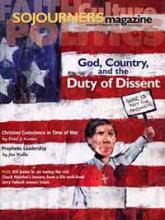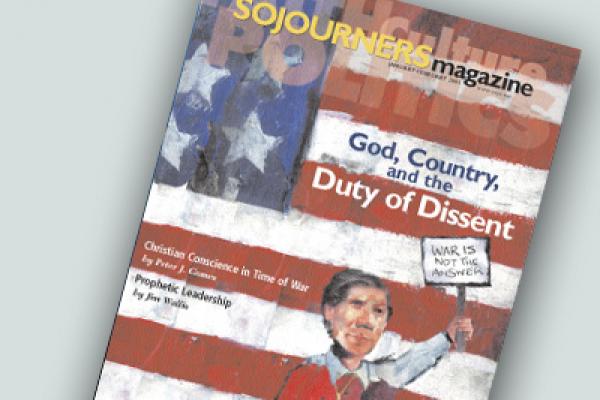On Oct. 7, just hours before President Bush in a Cincinnati speech outlined his case for the "urgent duty" of the United States to launch a pre-emptive military strike against Saddam Hussein and Iraq, some two dozen United Methodists from eight Michigan churches joined some 500 other people in a demonstration in downtown Detroit protesting the Bush preparations for war.
"We can't sleep through this rush to war," Rev. Ed Rowe of Detroit Central United Methodist Church told the Michigan Christian Advocate. "Killing innocent victims makes us the terrorists we hate."
The Detroit demonstration attracted little national attention. But the demonstration, in itself merely a drop of water, was a drop in what has become an ocean of faith-based opposition to the Bush-Cheney-Rumsfeld plans for war on Iraq. And for the most part it has been religious leaders and their congregations—especially mainline Protestant, progressive evangelicals, and Catholic pacifists in Great Britain and the United States—who have been the most vocal and visible in raising the alarm.
It should not be surprising.
Catholic and Protestant churches are in a different place than they were during the Gulf war of a decade ago or the Vietnam War of a generation ago. The churches have been shaped in large part by those two previous wars and, of course, are facing a different situation in that Iraq and the possibility of a new U.S.-led military campaign for a "regime change" has been a concern since 1991.
Read the Full Article

